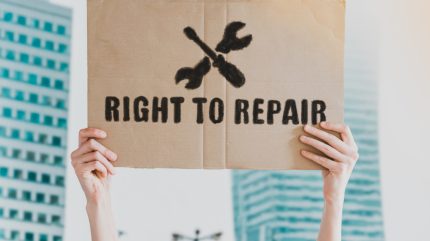
The Canadian government has announced its commitment to improving Canadians’ ability to repair products such as home appliances and consumer electronics through a new consultation.
The consultation will serve to gather feedback from citizens to inform the development of a federal right-to-repair or repairability policy approach in Canada. The focus will be durability, practicality and interoperability.
Launched by François-Philippe Champagne, minister of innovation, science and industry, and Steven Guilbeault, minister of environment and climate change, the initiative aims to give consumers greater choice over, and information on, repair options for products they buy from retailers.
When Canadians can more easily repair products such as washing machines or mobile phones, it saves them from purchasing expensive replacements and keeps waste out of landfills.
Feedback for the consultation can be submitted online until 26 September 2024.
Champagne commented: “Canadian consumers expect their digital devices and home appliances to last for a long time and to be repairable.”
Guilbeault added: “We need to reimagine how we produce and consume products to keep them in the economy and out of landfills for as long as possible. By throwing out fewer devices and appliances, we are using our resources more wisely and efficiently while reducing pollution and protecting our environment.”
Right-to-repair laws have been implemented across the world, with Europe legally requiring manufacturers to supply spare parts for up to ten years.
Retailers and manufacturers could strategically adjust new product prices to mitigate their foreseeable profit loss from right-to-repair legislation, according to the Harvard Business Review.


